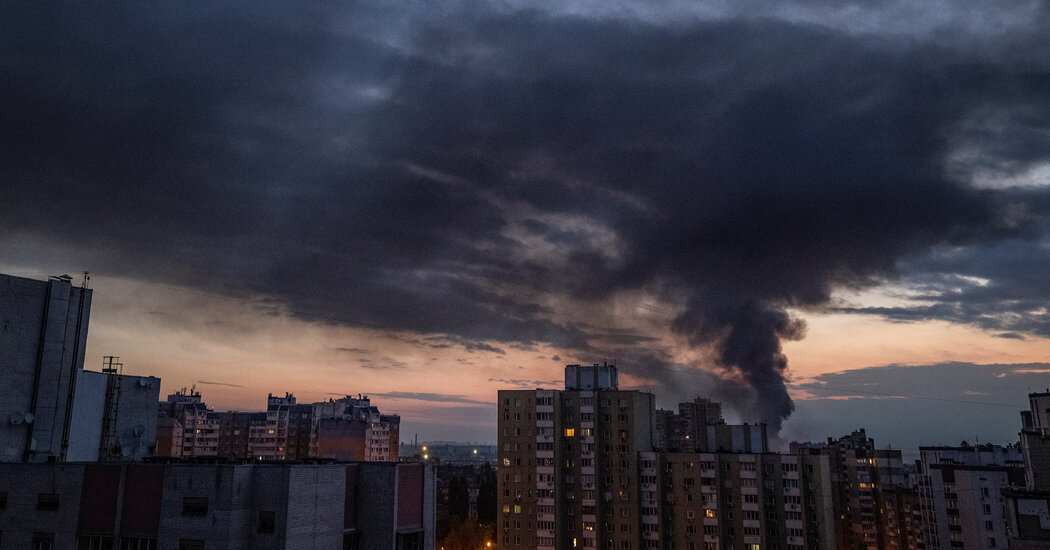Ukraine is asking companies to invest in an unlikely arena: minefields.
As the most mined country in the world according to its Ministry of Economic Development and Trade, Ukraine is seeking to develop a business model out of demining by bringing in the profit motive to speed up a process that might otherwise stretch for decades.
Ukrainian officials say that about a third of the country’s territory is potentially laden with land mines and unexploded ordnance, which pose grave risks to civilians for years to come. State agencies and foreign charities currently carry out most demining operations, but at the rate the government’s 16 certified demining teams are working, they say it would take hundreds of years to clear the country.
So Ukraine’s economic development ministry is trying to draw in private entrepreneurs and encourage innovation. The first test of its commercial demining initiative was at a site in central Ukraine on Wednesday, with demonstrations by three companies of their methods for detecting and destroying mines.
“We need to look for various ways of how to demine our land,” said Yulia Svyrydenko, Ukraine’s economic minister. “Otherwise, demining will take hundreds of years and we need to live and develop our economy now.”
The initiative covers humanitarian demining, or removing mines that linger for years or decades after battles end. It is distinct from clearing mines during combat — a job only performed by the military.
Creating a free market for demining has been a priority for the economic ministry. Its plan is for private landowners — farmers or local governments — to auction contracts to clear their sites in forested zones or open fields, which would have varying degrees of difficulty and dangers. The ministry now has 69 applications from private companies; when a company is certified, it can make a bid.
The initiative includes encouragement for domestic innovations that create products for export to other countries struggling with mines, rather than merely allowing Ukraine’s minefields to be used as testing grounds for established foreign defense industry companies.
“It is not our goal to make money as we want to demine our country,” said Riabchenko Ruslan, a designer with Postup Foundation, a group participating in the project. “But once the war is over, we will be able to export our technology” for demining and other niche applications, like archaeology.
Among supporters of the concept is Howard G. Buffett, a son of the billionaire investor Warren Buffett and a director of the global conglomerate Berkshire Hathaway. The younger Mr. Buffett’s charity foundation supports demining efforts in Ukraine.
“It is really important to create the environment in which people are going to try to bring their best services and the best innovation to get this done,” Mr. Buffett said.
Beyond saving lives, demining agricultural land will play a role in lowering global food prices, Mr. Buffett said.
On Wednesday, Mr. Buffett met the first Ukrainian farmer to participate in a demining auction and observed the three companies that were demonstrating their work, including presenting drones designed to detect mines.
They worked in a field of dry, unharvested soy rimmed with white and red ribbons and signs with small skulls warning of mine danger, a common sight in Ukraine. Mine removal experts, using traditional methods of careful probing and walking with metal detectors, have been working two months just in this one field, clearing about 120 acres.
The presentation for drone detection was for an industry no country would want to excel at. Still, it was a sad and hopeful moment at once. “You are going to see Ukraine lead the world” in such technologies, Mr. Buffett said.


